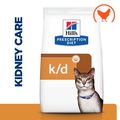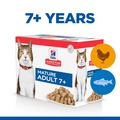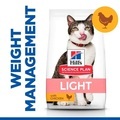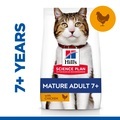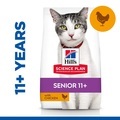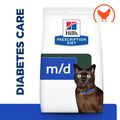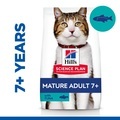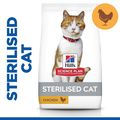Making sure our pets have the correct nutrition throughout their lives is extremely important, especially as they get older. A properly balanced diet tailored to their needs will help to ensure that they continue to thrive as they progress through their twilight years.
As our dogs age they tend to gain fat but lose muscle and overall are prone to obesity. Whereas cats struggle to maintain both fat and muscle and can easily become underweight. Our dog’s guts remain able digest and process food pretty well but the cat’s system often declines and finds absorbing fat and protein more challenging.
For our canine companions their body composition changes tend to be as a result of common ageing problems like arthritis and senile dementia, both of which contribute to a decline in activity levels. Therefore leaving them vulnerable to weight gain from fat deposits and weakness from muscle wastage.
Overall our senior dogs need 25% less energy in their food than younger ones and it is vital we feed them a diet which reflects, this as staying a healthy weight can increase their lifespan by up to two years! However, it is important that when we reduce energy, we don’t reduce protein as this is needed to maintain strong, healthy muscles which support ageing joints and overall fitness.
Our cats also suffer with arthritis in old age. We notice it less because we expect them to be more sedentary as they get older but just like the dogs, it can lead to muscle loss and reduced mobility. Also, because of their inability to utilise nutrition as well as before, if we don’t feed them a diet rich in high quality, easily digestible proteins and fats, they will be forced to burn up their body’s stores and lose even more condition.
Another consequence of ageing is a change is how the body’s metabolism functions. The process becomes less efficient and more ‘free radicals’ are produced as a result. These are damaging molecules which affect many different cells in the body, particularly the brain, and can contribute to dementia changes. Anti-oxidants will combat this damage and are often supplemented in a senior pet diet for exactly this reason.
As we’ve discussed arthritis and joint problems are common in older pets and most diets tailored for them will contain added Omega-3 oils, which have been shown to reduce inflammation in joints. Look out for ones containing both EPA (eicosapentaenoic acid) and DHA (docosahexaenoic acid) to get the maximum benefit.
Many elderly pets will struggle with a decline in brain function but it can be hard to pick up on until it is advanced and even more difficult to treat. This is why medium chain triglycerides (MCTs) are another good thing to look out for in older pet diets. They are a fatty acid which has been shown to support cognitive function and help combat senile changes, particularly when used in combination with anti-oxidants and omega-3 fatty acids.
For all our pets, but particularly our older ones, it is not just about what you feed but how you feed it.
For many elderly dogs, their bodies are starting to slow them down but their minds are still active and benefit from being exercised! Ditch the boring food bowl and use something more fun but not too physically challenging like a snuffle mat for dry food or licky mat for wet.
Cats are naturally ‘little and often’ eaters and often even more so in their later years. They can also become quite fussy and may respond well to having several different senior foods on rotation. However, if they start to show a real preference for wet foods, do get their teeth checked out by a vet to ensure they aren’t in pain.
Unfortunately, even with the best of care our elderly pets are more likely to succumb to diseases and illnesses but in many cases an even more specialised diet can really help! Many senior foods are designed to be supportive of joints, brain and organ function, but there are also prescription diets that will do all of these things but are even more focussed on combatting diseases such as kidney failure, liver disease, arthritis and heart conditions.
If your kitty is into double figures or your dog in their dotage and they aren’t already on a great quality, complete diet designed exactly for their needs, please have a chat to your vet about moving their menu to something which will ensure their senior years are as special as they are!
Written by: Cat Henstridge BVSc MRCVS (Guest Author)



